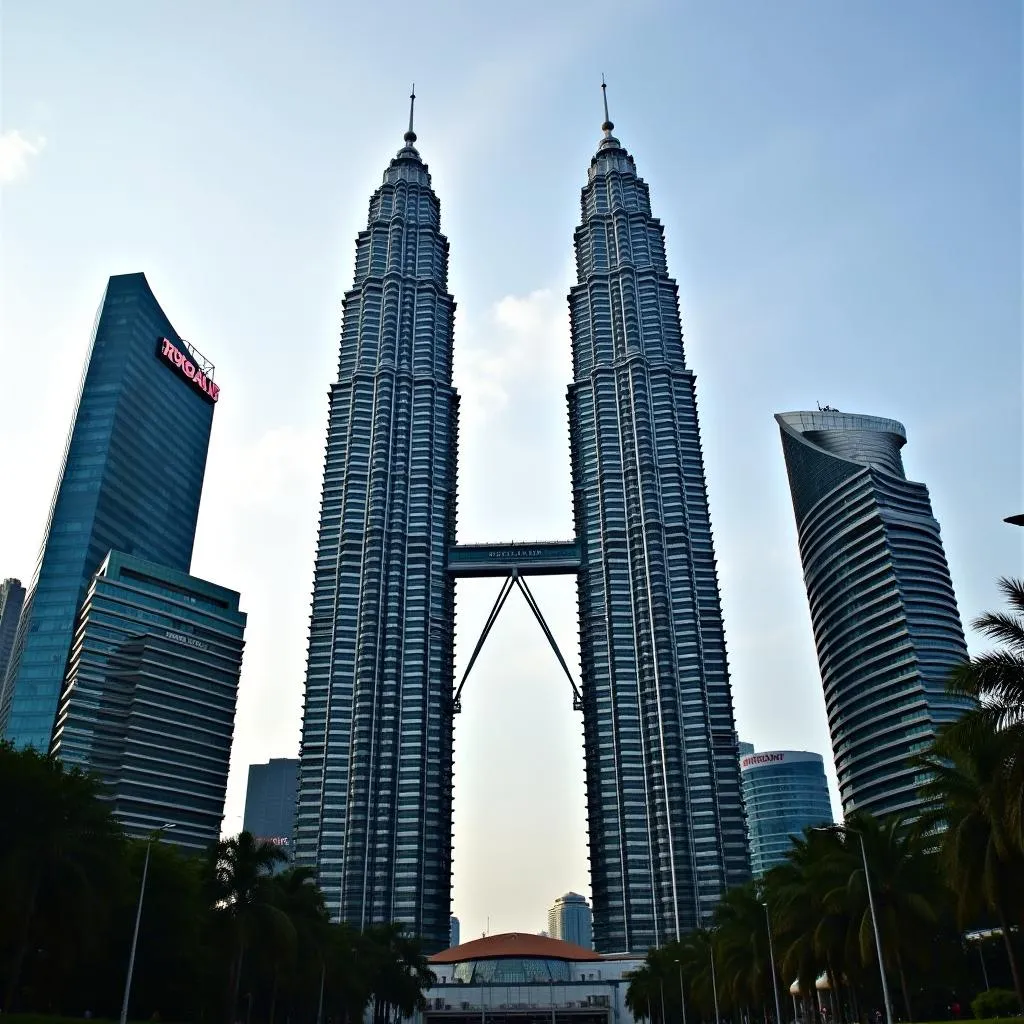Describing a building that stands out in your city is a common topic in IELTS Speaking tests. This subject allows examiners to assess your vocabulary, fluency, and ability to provide detailed descriptions. Let’s explore how to tackle this topic effectively and achieve a high score.
Describe a person who taught you the value of kindness can be another interesting topic to prepare for your IELTS Speaking test. However, let’s focus on describing a distinctive building in your city.
Part 1: Introduction and Interview
In this section, the examiner may ask you general questions about buildings and architecture. Here are some possible questions:
- Do you like modern or traditional buildings?
- What’s the tallest building in your city?
- Are there any famous buildings in your hometown?
Let’s look at a sample answer for the first question:
Examiner: Do you like modern or traditional buildings?
Candidate (Band 7-8 answer): I have a preference for modern buildings, actually. I find their sleek designs and innovative features quite captivating. That being said, I can certainly appreciate the historical significance and intricate craftsmanship of traditional architecture as well. I think both styles have their own unique charm and contribute to the urban landscape in different ways.
Part 2: Long Turn
Here’s a sample cue card for this topic:
Describe a building in your city that stands out.
You should say:
- What the building is
- Where it is located
- What it looks like
- And explain why it stands out
Sample Answer (Band 8-9)
I’d like to talk about the iconic Petronas Twin Towers in Kuala Lumpur, Malaysia. These towering skyscrapers are located in the heart of the city’s central business district, serving as both a landmark and a symbol of national pride.

The Petronas Towers are truly a sight to behold. Standing at an impressive height of 451.9 meters, they were once the tallest buildings in the world. What sets them apart is their unique architectural design, which blends Islamic motifs with contemporary aesthetics. The towers feature a distinctive postmodern style with a steel and glass facade that gleams in the sunlight.
One of the most striking features of the towers is the sky bridge that connects them at the 41st and 42nd floors. This double-decker bridge not only serves a functional purpose but also adds to the building’s visual appeal.
The Petronas Twin Towers stand out for several reasons. Firstly, their sheer scale makes them impossible to miss in the city skyline. Secondly, their innovative design, which incorporates Islamic geometric patterns, reflects Malaysia’s cultural heritage while showcasing its modern aspirations. Lastly, the towers have become a global icon, featuring in numerous films and attracting millions of visitors each year, thus putting Kuala Lumpur on the world map.
In conclusion, the Petronas Twin Towers are not just a remarkable feat of engineering but also a testament to Malaysia’s progress and vision for the future.
Follow-up Questions
- How has this building impacted the city’s skyline?
- Do you think modern buildings like this one are more practical than traditional buildings?
Sample answer for question 1 (Band 8-9):
The Petronas Twin Towers have undoubtedly transformed Kuala Lumpur’s skyline. They’ve become the city’s defining feature, instantly recognizable from afar. Their presence has elevated the city’s status on the global stage, attracting international attention and investment. Moreover, the towers have inspired the construction of other high-rise buildings nearby, creating a cluster of skyscrapers that gives the city a more metropolitan feel. This vertical growth has not only changed the visual landscape but also influenced urban planning and land use in the surrounding areas.
Part 3: Two-way Discussion
Examiner: How do you think architecture affects people’s daily lives?
Candidate (Band 8-9 answer): Architecture plays a profound role in shaping our daily experiences. Well-designed buildings can enhance our quality of life by providing comfortable living and working spaces that promote productivity and well-being. For instance, offices with ample natural light and good ventilation can boost employee morale and efficiency. Similarly, thoughtfully planned public spaces like parks integrated into urban architecture can foster community interaction and improve mental health.
Moreover, architecture reflects and influences cultural values and social norms. Iconic structures often become symbols of identity for cities or nations, instilling a sense of pride in residents. On a practical level, sustainable architectural practices can significantly impact our environmental footprint, contributing to energy efficiency and reducing resource consumption.
However, it’s important to note that poorly conceived architecture can have adverse effects, such as creating congested urban spaces or socioeconomic divides. Therefore, responsible urban planning and architecture are crucial for creating livable, inclusive cities that cater to diverse needs and promote social harmony.
Describe a place in your country where you would like to work could be an interesting follow-up topic to discuss after talking about distinctive buildings in your city.
Key Vocabulary and Phrases
Here are some useful terms and expressions to help you achieve a high score:
-
Iconic /aɪˈkɒnɪk/ (adjective): Very famous or popular, especially being considered to represent particular opinions or a particular time.
Example: The Eiffel Tower is an iconic symbol of Paris. -
Skyline /ˈskaɪlaɪn/ (noun): The shape that is formed where the sky meets buildings or land.
Example: New York’s skyline is famous for its many skyscrapers. -
Architectural marvel /ˌɑːkɪˈtektʃərəl ˈmɑːvl/ (noun phrase): A building that is considered extraordinarily impressive or innovative in its design.
Example: The Sydney Opera House is considered an architectural marvel. -
Blend /blend/ (verb): To mix or combine things together.
Example: The building’s design blends traditional and modern elements. -
Striking /ˈstraɪkɪŋ/ (adjective): Attracting attention by being unusual, extreme, or prominent.
Example: The striking color of the building makes it stand out from its surroundings.
Describe a memorable day you spent with friends could be an interesting topic to practice after mastering the vocabulary for describing buildings.
Examiner’s Advice
To excel in the IELTS Speaking test when describing a building:
- Use a variety of descriptive adjectives to make your description vivid and engaging.
- Discuss both the physical attributes of the building and its significance or impact on the city.
- Practice speaking about different types of buildings to expand your vocabulary and fluency.
- Be prepared to discuss broader topics related to architecture and urban development in Part 3.
- Use personal anecdotes or observations to make your answers more authentic and interesting.
Remember, the key to success is not just knowing what to say, but how to say it fluently and coherently. Regular practice and expanding your vocabulary will help you achieve a high score in the IELTS Speaking test.
Describe a historical place in your city is another topic that could complement your preparation for describing buildings in IELTS Speaking. By practicing various related topics, you’ll be well-prepared for any question that comes your way in the actual test.
